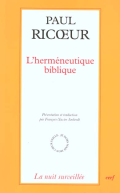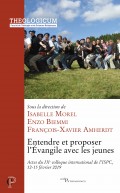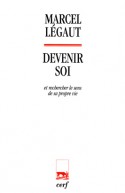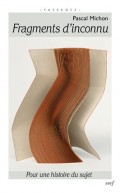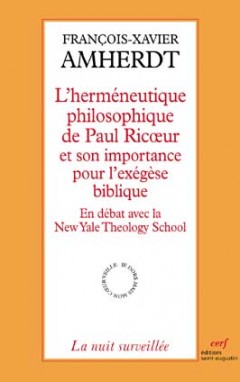
Herméneutique philosophique de Paul Ricœur et son importance pour l'exégèse biblique (L')
Collection La Nuit surveillée
876 pages - sept. 2004
38,50€
Le document de la Commission biblique pontificale intitulé « L'interprétation de la Bible en Église » (1994) mentionne le philosophe protestant Paul Ricœur au rang des penseurs herméneutiques indispensables à l'intelligence de l'Écriture en Église catholique. Fruit de deux thèses de doctorat en lettres et en théologie aux Facultés de l'Université de Fribourg (Suisse), le présent ouvrage fait le bilan des relations complexes d'inclusion mutuelle qu'entretiennent chez Ricœur les herméneutiques philosophique et biblique, et offre un commentaire développé des paragraphes que consacre au penseur français la Déclaration vaticane. Le modèle interprétatif ricœurien suit un arc herméneutique complet dans lequel s'articulent exégèse scientifique et lecture croyante confessante. Son objectif global consiste à suivre l'intention référentielle du texte (sa flèche de sens) vers sa vision de la réalité, vers son ontologie particulière. Au-delà de la contestation de la New Yale Theology School, peut-être Ricœur pourrait-il ouvrir un nouveau modèle théologique, dans la classification de Lindbeck, à mi-chemin entre le type « expérientiel-expressif » (celui de Tracy) et le type « culturo-linguistique » (celui de l'École de Yale) : le type du « structuralisme intertextuel » (à la Paul Beauchamp) conduisant à une « poétique générative » ?
--
François-Xavier Amherdt has taken up a challenge: “to expose systematically the relations between philosophical hermeneutics and biblical hermeneutics in the work of Paul Ricoeur. He investigates in its entirety ‘a general hermeneutic theory’, taken from the author who is his reference, then observes its concepts, principles and methods applied to the texts of the Bible. His observation of the origins and the sources - starting from the ‘Philosophy of the Will’- leads Amherdt progressively to the analysis of fallibility and fault, to have recourse to symbols that ‘provoke thought’, then to the conflict of interpretations that he wishes to arbitrate; which, consequently, obliges him to situate Paul Ricoeur in the grand line of hermeneutics – from Schleiermacher to Dilthey and Heidegger – and to follow his argumentation on the gnosiological or exegetical options of Gadamer or Bultmann… Amherdt enters into the heart of Ricoeur’s hermeneutics by retracing the constitution of the major categories that assure hermeneutics the place it holds in the philosophical sciences: a science that studies an organised object and gives its canonic law to the movement of appropriation of meaning and the ‘truth of existence’.
--
François-Xavier Amherdt has taken up a challenge: “to expose systematically the relations between philosophical hermeneutics and biblical hermeneutics in the work of Paul Ricoeur. He investigates in its entirety ‘a general hermeneutic theory’, taken from the author who is his reference, then observes its concepts, principles and methods applied to the texts of the Bible. His observation of the origins and the sources - starting from the ‘Philosophy of the Will’- leads Amherdt progressively to the analysis of fallibility and fault, to have recourse to symbols that ‘provoke thought’, then to the conflict of interpretations that he wishes to arbitrate; which, consequently, obliges him to situate Paul Ricoeur in the grand line of hermeneutics – from Schleiermacher to Dilthey and Heidegger – and to follow his argumentation on the gnosiological or exegetical options of Gadamer or Bultmann… Amherdt enters into the heart of Ricoeur’s hermeneutics by retracing the constitution of the major categories that assure hermeneutics the place it holds in the philosophical sciences: a science that studies an organised object and gives its canonic law to the movement of appropriation of meaning and the ‘truth of existence’.
- Dimensions : 135x215x32
- ISBN : 9782204075923
- Poids : 1204 grammes
DU MÊME AUTEUR
Entendre et proposer l’évangile avec les jeunes
de François-Xavier Amherdt ,Isabelle Morel ,Enzo Biemmi
276 pages - mars 2020
> VOIR TOUS LES LIVRES DE l'AUTEUR
DANS LA CATÉGORIE
Michel Henry, l'épreuve de la vie
544 pages - déc. 2000

